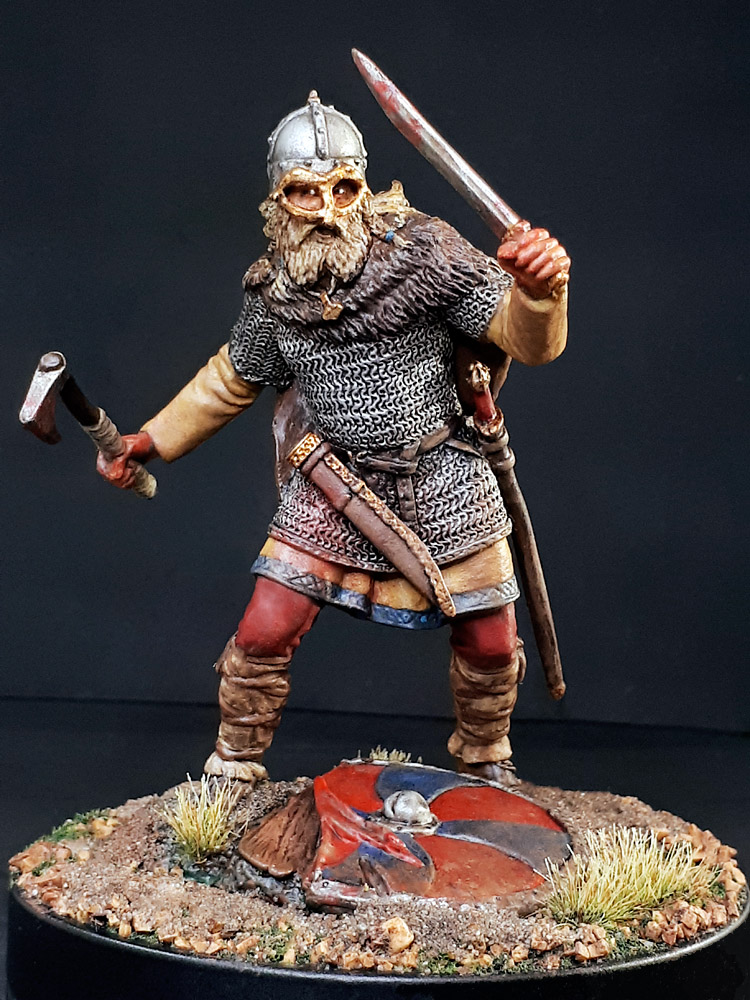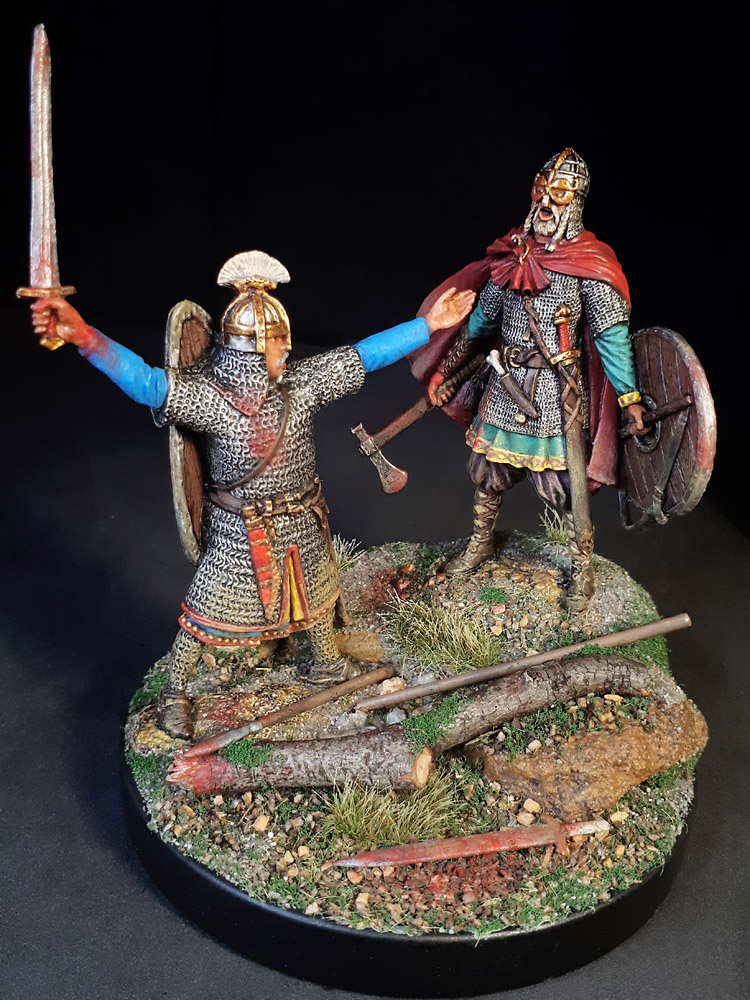
From 865 to 1066, England faced repeated attacks from Scandinavian ‘Viking’ warriors. The Anglo-Saxons themselves had invaded the area and settled there in the 5th and 6th centuries, having travelled by sea from southern Scandinavia, northern Germany and parts of the Netherlands.
At the time of their arrival, what is now England was divided into a number of British Welsh-speaking kingdoms, which retained some influences from the Roman Empire, which had withdrawn from Britain in the early 5th century.

The Anglo-Saxons conquered many of those kingdoms, establishing many of their own, including the important kingdoms of Mercia, Kent, Northumbria, the East Angles and the West Saxons.
Although the term ‘Anglo-Saxons’ is used as a general term for these peoples today, it was only in the late 9th century, with the beginnings of the unification of England, that the idea of Anglo-Saxons was used to create a sense of common identity in the face of the Viking invaders.
There was a recognized ‘kingdom of the Danes’, which probably included most of, if not all modern Denmark, together with parts of south-east Norway, southern Sweden and northern Germany, but the term ‘Danes’ was also used as a general term for all Scandinavians. Similarly the term ‘Northmen’ is sometimes used specifically to mean Norwegians, but again is more often used as a general term.
Often they are described in a more general sense as Danes, Northmen, heathens, pagans, ‘foul men’ or even simply ‘pirates’. These are the people that we know today as Vikings. Early Viking raids were mostly carried out on a small scale, targeting coastal monasteries and trading centres in search of loot, and fleeing quickly.
Both the size and frequency of such raids seem to have increased dramatically over time, and from the 830s onwards Anglo-Saxon, Irish and Frankish sources all report independently the presence of large Viking fleets in Britain, Ireland and western Europe. These fleets numbered hundreds of ships, and thousands of men.
The Viking raids would see another escalation in England in 865, with the arrival of what the Anglo-Saxons called a ‘micel here’, or ‘great raiding army’. This campaigned for years at a time, conquering and eventually settling the kingdoms of East Anglia and Northumbria, and a large part of the kingdom of Mercia.
Only the kingdom of the West Saxons held out, but even their King Alfred ruling from 871–99, later known as ‘the Great’, would be forced into hiding before re-emerging to inflict a decisive defeat on the Vikings.
